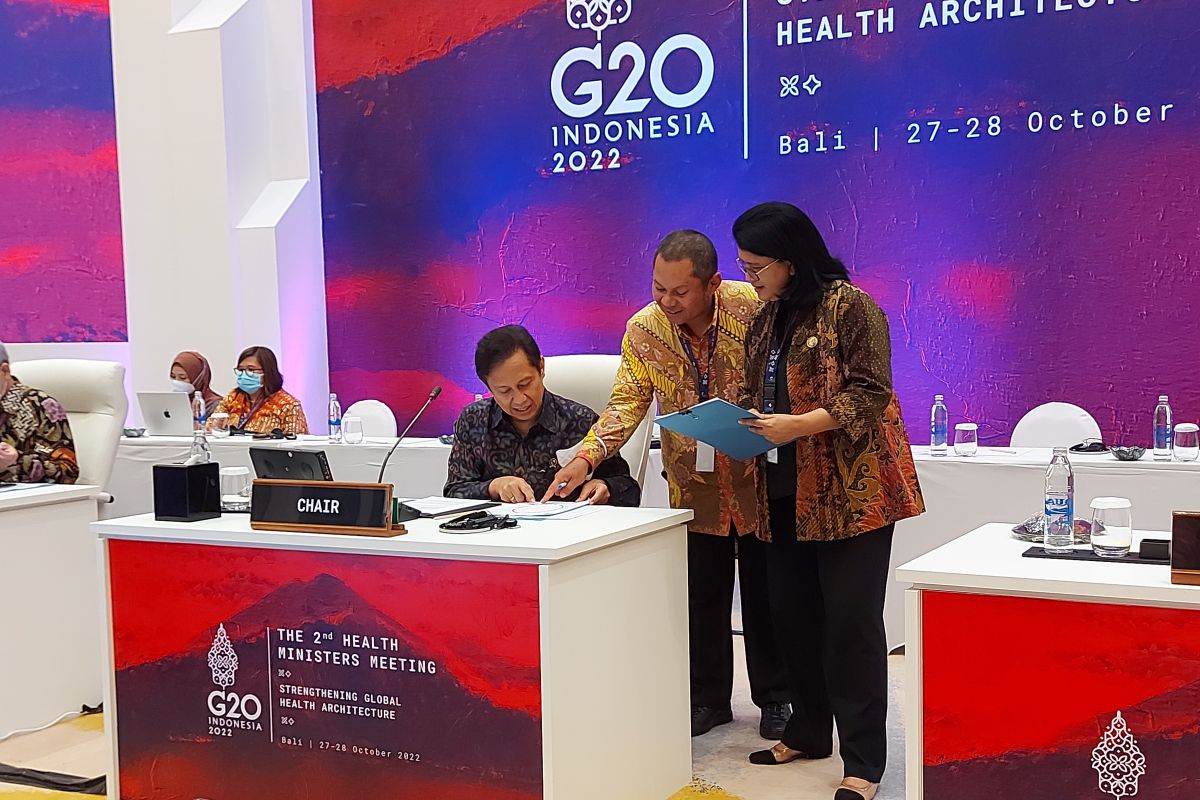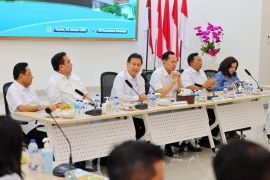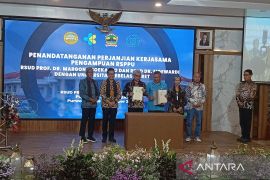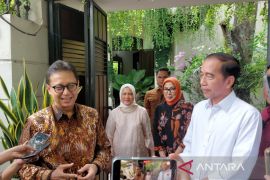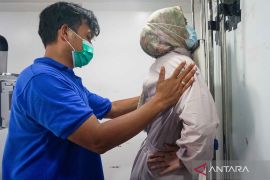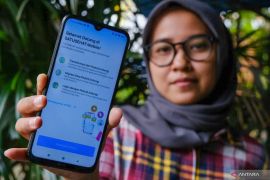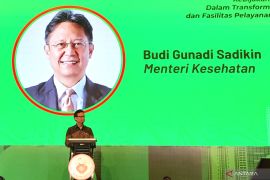We believe that (sharing) information on the development (of potential pandemics) from various countries is like an early warning.Bali (ANTARA) - The 2nd G20 Health Ministerial Meeting (HMM) on October 27–28, 2022, in Bali resulted in a technical document outlining six main actions for improving the global health architecture.
"We are pleased and confident (we will be able) to implement the actions outlined in the technical document to support various ideas and initiatives for strengthening the global health architecture," Indonesian Health Minister Budi Gunadi Sadikin said at a press conference on the implementation of the 2nd HMM here on Friday.
The HMM, which discusses global health issues, is a part of the Sherpa Track of Indonesia’s G20 Presidency.
The six main actions for improving the global health architecture include the establishment of a joint financial and health task force by inviting G20 members to realize the Financial Intermediary Fund (FIF) target.
Furthermore, G20 nations will also need to establish a clear regulation regarding the procedures for accessing the FIF funds to deal with future pandemics.
"Based on the evaluation of the access to the COVID-19 mitigation (vaccine, therapeutic, and diagnostic) tools, G20 members should develop (a more improved mechanism to prepare) for pandemics in the future. There must be clear arrangements on how to use the funding (FIF) and make those funds available in the future," the minister said.
Related news: Minister urges youth to develop nation's potential
The third action pertains to the development of the genomic surveillance sector, which can support the prevention and monitoring of potential pandemics.
"We believe that (sharing) information on the development (of potential pandemics) from various countries is like an early warning. For instance, when there are pathogens, bacteria, or parasites which infect some place in the world, we can share information and give each other warnings (about it)," Sadikin said.
Yet another action is the establishment of a digital global travel certificate system, which will include vaccination data and health information of international travelers, to prevent cross-border pandemic transmission.
"This digital certificate (system) will help us in the future if any pandemic happens, thus we do not have to completely hinder the (people’s) mobility and the movement of goods, hence important services will not be hampered," the minister explained.
He said that the G20 nations have agreed to amend the current global health regulations by including digital vaccine certificates in the World Health Organization’s (WHO’s) new regulations.
The next action is mapping research and laboratory networks to build equitable access to health services.
"It (the fifth action) will be continued in the next (2023) G20 Presidency of India. Indonesia, South Africa, Turkey, Brazil, and several other countries have agreed to establish vaccine production and research networks," Sadikin informed.
Meanwhile, the sixth action is increasing funding for tuberculosis treatment, establishing integrated health initiatives, as well as improving the capacity to prevent, detect, and respond to antimicrobial resistance (AMR).
Related news: Youth must become change makers: East Java Governor
Related news: Youth living in islands must not feel inferior: governor
Translator: Andi Firdaus, Uyu Liman
Editor: Suharto
Copyright © ANTARA 2022
